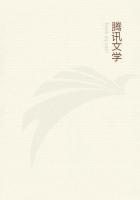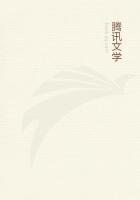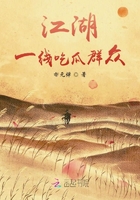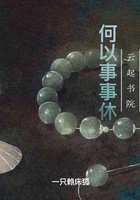Upon the wide tableland that lies at the back of a certain Indian agency, a camp of a thousand teepees was pitched in a circle, according to the ancient usage. In the center of the circle stood the council lodge, where there were gathered together of an afternoon all the men of years and distinction, some in blank- ets, some in uniform, and still others clad in beggarly white man's clothing. But the minds of all were alike upon the days of their youth and *******.
Around the council fire they passed and re- passed the pipe of peace, and when the big drum was struck they sang the accompaniment with sad yet pleasant thoughts of the life that is past. Between the songs stories of brave deeds and dangerous exploits were related by the actors in turn, with as much spirit and zest as if they were still living in those days.
"Tum, tum, tum," the drum was sounded.
"Oow, oow!" they hooted in a joyous chorus at the close of each refrain.
"Ho!" exclaimed finally the master of cere- monies for the evening. "It is Zuyamani's story of his great ride that we should now hear! It was not far from this place, upon the Missouri River, and within the recollection of many of us that this occurred. Ye young men must hear!""Ho, ho!" was the ready response of all pres- ent, and the drum was struck once according to custom. The pipe was filled and handed to Zuy- amani, who gravely smoked for a few moments in silence. Then he related his contribution to the unwritten history of our frontier in these words:
"It was during the winter following that sum- mer in which General Sibley pursued many of our people across the Muddy River (1863), that we Hunkpatees, friendly Sioux, were camping at a place called 'Hunt-the- Deer,' about two miles from Fort Rice, Dakota Territory.
"The Chief Soldier of the garrison called one day upon the leading chiefs of our band. To each one he said: 'Lend me your bravest war- rior!' Each chief called his principal warriors together and laid the matter before them.
"'The Chief Soldier at this place,' they ex- plained, 'wants to send a message to Fort Ber- thold, where the Rees and Mandans live, to an- other Chief Soldier there. The soldiers of the Great Father do not know the way, neither could any of them get through the lines. He asks for a brave man to carry his message.'
"The Mandans and the Rees were our hered- itary enemies, but this was not the principal rea- son for our hesitation. We had declared alle- giance to the Great Father at Washington; we had taken our stand against the fighting men of our own nation, and the hostile Sioux were worse than enemies to us at this time!
"Each chief had only called on his leading warriors, and each in turn reported his failure to secure a volunteer.
"Then the Chief Soldier sent again and said: 'Is there not a young man among you who dares to face death? If he reaches the fort with my message, he will need to be quick-witted as well as brave, and the GreatFather will not forget him!'
"Now all the chiefs together called all the young men in a great council, and submitted to them the demand of the Great Father's servant. We knew well that the country between us and Fort Berthold, about one hundred and fifty miles distant, was alive with hostile Sioux, and that if any of us should be caught and recognized by them, he would surely be put to death. It would not be easy to deceive them by professing hostil- ity to the Government, for the record of each individual Indian is well known. The warriors were still unwilling to go, for they argued thus: 'This is a white man's errand, and will not be recorded as a brave deed upon the honor roll of our people.' I think many would have vol- unteered but for that belief. At that time we had not a high opinion of the white man.
"Since all the rest were silent, it came into my mind to offer my services. The warriors looked at me in astonishment, for I was a very young man and had no experience.
"Our chief, Two Bears, who was my own uncle, finally presented my name to the command- ing officer. He praised my courage and begged me to be vigilant. The interpreter told him that I had never been upon the war-path and would be knocked over like a rabbit, but as no one else would go, he was obliged to accept me as his messenger. He gave me a fine horse and saddle; also a rifle and soldier's uniform. I would not take the gun nor wear the blue coat. I accepted only a revolver, and I took my bow and quiver full of arrows, and wore my usual dress. I hid the letter in my moccasin.
"I set out before daybreak the next morning. The snow was deep. I rode up the river, on the west bank, keeping a very close watch all the way, but seeing nothing. I had been provided with a pair of field glasses, and I surveyed the country on all sides from the top of every hill. Having traveled all day and part of the night, I rested my horse and I took a little sleep.
"After eating a small quantity of pemmican, I made a very early start in the morning. It was scarcely light when I headed for a near-by ridge from which to survey the country beyond. Just as I ascended the rise Ifound myself almost sur- rounded by loose ponies, evidently belonging to a winter camp of the hostile Sioux.
"I readjusted my saddle, tightened the girths, and prepared to ride swiftly around the camp. I saw some men already out after ponies. No one appeared to have seen me as yet, but I felt that as soon as it became lighter they could not help observing me. I turned to make the circuit of the camp, which was a very large one, and as soon as I reached the timbered bottom lands I began to congratulate myself that I had not been seen.
"As I entered the woods at the crossing of a dry creek, I noticed that my horse was nervous. I knew that horses are quick to discover animals or men by scent, and I became nervous, too.
"The animal put his four feet together and almost slid down the steep bank. As he came out on the opposite side he swerved suddenly and started to run. Then I saw a man watching me from behind a tree. Fortunately for me, he carried no weapon. He was out after ponies, and had only a lariat wound upon one shoulder.

